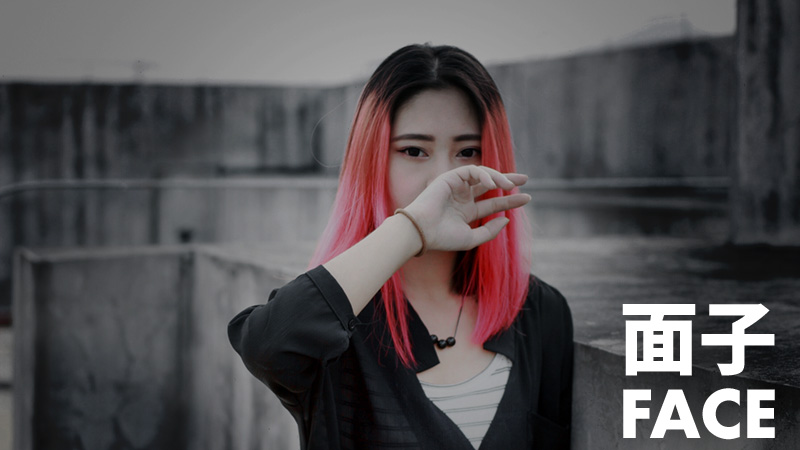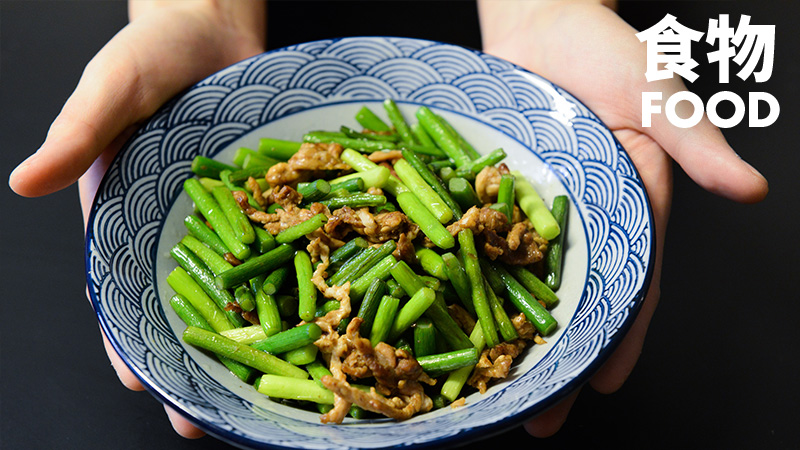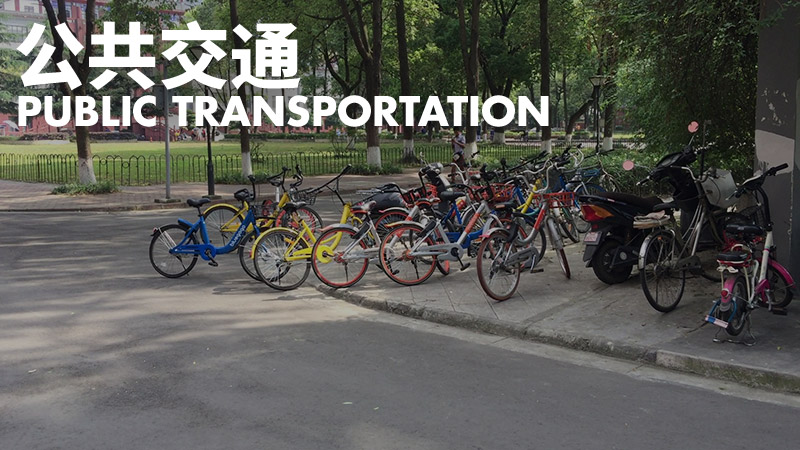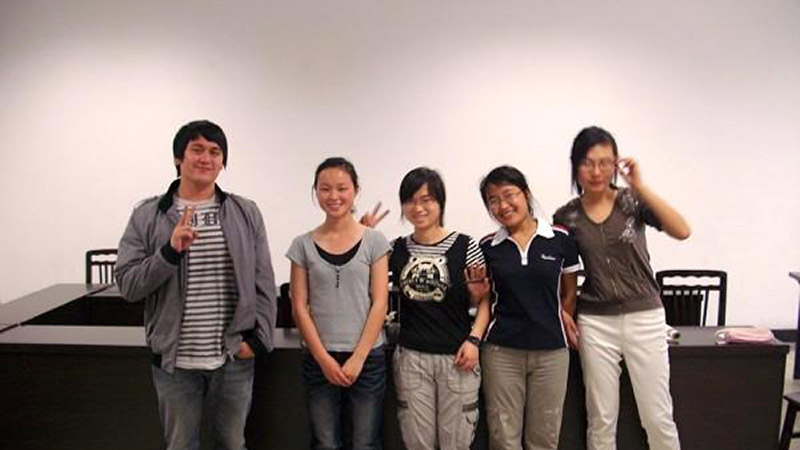It was August of 2008, at the height of the financial crisis, and I was sitting at home watching the opening ceremony of the Beijing Olympics. Little did I know at the time, that my interest in China would be sparked, and I’d be on a plane to Chengdu in just a couple of months. Upon landing in Chengdu, I had a friend pick me up from the airport and take me to the University. I didn’t speak a word of Chinese at the time, and even buying snacks and drinks was extremely difficult. If you go to China as part of an exchange program, you’ll be taken care of the entire time you’re there, but for me this wasn’t the case. I had a friend of a friend that I never met before helping me, but I was pretty much on my own. Smartphones weren’t a big thing back then, so I even had trouble asking where I could wash my clothes, which resulted in me washing my clothes in my bathroom sink and hanging them in my room to dry. Needless to say, those days were tough. So I hope that if you choose to study abroad in China this article will help you out a little bit.
EXPECTATIONS:
I’m not sure exactly what my expectations were, but I can tell you that China was way more different than I could ever have imagined. It’s as different from the US as a place can possibly be. Which is why I was so excited! At the time, I really needed a change and China was just what I was looking for. When you first go to China you might have expectations that a lot of people there speak English, but realistically only some of the students at the university were be able to speak English. This may not be the case in places like Beijing or Shanghai. But for Chengdu, you'll have to learn Chinese fast.

“They lose face and will never talk to you again.”
FACE:
When you study abroad in China you have to be aware of cultural differences. The concept of “face” or 面子 miàn zi was the hardest thing for me to get used to. Sichuan people are very proud of their food. They'll ask you questions like "do you think Sichuan food is better than American food?" Especially hotpot, if you tell them that it's not really your thing (you learn to love it after a while) they lose face and will never talk to you again. It was hard to get used to at first, it’s like asking a foreigner if they like hamburgers and to be really offended if they say “no not particularly”. Also, if you have a roommate that always leaves the windows of your apartment open, letting in a bunch of mosquitoes, and you call him out on it, he’ll deny it, trying to save face. If you keep pushing the matter (because you don’t want to get bit anymore) he loses face and there’s a good chance he’ll stop being your friend. The best advice I can give you is just always be positive even if you're upset and they'll never lose face.
WHAT TO DO WHEN YOU GET THERE:
You are going to need to get a taxi from the airport to your school, have the address printed out in Chinese and be ready to show the driver. You’ll then need to locate the overseas student dormitory. you can print a page with this written on it 你好,我是外国人,我不会中文。能不能带我去留学生宿舍?Nǐhǎo, wǒ shì wàiguórén, wǒ bú huì zhōngwén. Néngbùnéng dài wǒ qù liúxuéshēng sùshè.(Hi, I’m a foreigner, I don’t speak Chinese. Can you please take me to the overseas student dormitory?) and show it to random people on campus until someone helps you. Once you get to the dormitory and after you get checked in to your room, you can ask where the laundry machine is and where to dry your clothes. 请问,洗衣机在哪儿?在哪儿可以晒衣服?qǐngwèn, xǐyījī zàinǎr? Zàinǎr kěyǐ shài yīfu? Eventually, you’re going to need to eat or drink something which is going to require you to pay. Chinese RMB comes in 元 or 块 in 1, 5, 10, 20, 100 bills, and 角 or 毛 which comes in 1 and 5 these are kind of like the cents except 1 = 10 and 5=50 meaning 1.50 RMB is 1元5角 or 1块5毛.
What to eat is all personal preference and based on the style of restaurant you’re in, but food is one of the best parts of studying abroad in China. Here's some standard dishes that most foreigners like:

FOOD:
Main Courses
| CHINESE |
PINYIN | ENGLISH |
|---|---|---|
| 糖醋里脊 | tángcù lǐjǐ | Sweet & Sour Pork |
| 辣子鸡丁 | làzi jīdīng | Spicy Diced Chicken (spicy) |
| 宫保鸡丁 | gōngbǎo jīdīng | Kung Pao Chicken (spicy) |
| 回锅肉 | huíguōròu | Twice Cooked Pork (spicy) |
| 番茄炒蛋 | fānqié chǎodàn | Tomato Fried Egg |
| 锅巴肉片 | guōba ròupiàn | Pork Slices with Crisped Rice Blocks |
| 小炒肉 | xiǎo chǎoròu | Stir-Fried Pork Slices (spicy) |
| 铁板牛肉 | tiěbǎn niúròu | Beef Skillet |
| 孜然羊肉 | zǐrán yángròu | Cumin Lamb |
Noodles & Soup
| CHINESE |
PINYIN | ENGLISH |
|---|---|---|
| 红烧牛肉面 | hóngshāo niúròu | Braised Beef Noodles (spicy) |
| 番茄煎蛋面 | fānqié jiāndànmiàn | Fried Egg & Tomato Noodles |
| 红油抄手 | hóngyóu chāoshǒu | Red Oil Wontons (spicy) |
| 清汤抄手 | qīngtāngchāoshǒu | Soup Wontons |
| 蕃茄玉米排骨汤 | fānqié yùmǐ páigǔtāng | Tomato, Corn and Pork Rib Soup |
| 羊肉泡馍 | yángròu pàomó | Lamb Soup with pieces bread |
| 菠菜汤 | bōcàitāng | Spinach Soup |
Vegetables
| CHINESE |
PINYIN | ENGLISH |
|---|---|---|
| 炒白菜 | chǎo báicài | Stir-Fried Bok Choy |
| 土豆丝 | tǔdòusī | Stir-Fried Potato Strings |
| 莴笋 | wōsǔn | A Type of Green Chinese Vegetable |
| 空心菜 | kōngxīncài | Ong Choy |
| 油菜 | yóucài | Rapeseed Plant (a plant that's used to make oil) |
Drinks
| CHINESE |
PINYIN | ENGLISH |
|---|---|---|
| 可口可乐 | kěkǒu kělè | Coke |
| 百事可乐 | bǎishì kělè | Pepsi |
| 雪碧 | xuěbì | Sprite |
| 7喜 | qīxǐ | 7Up |
| 冰水 | bīngshuǐ | Cold Water |
| 热水 | rèshuǐ | Hot Water |
| 茶 | chá | Tea |
LIVING OFF-CAMPUS:
After your Chinese improves you’re really going to want to move out of the dormitory. Because, for roughly the same price as a standard dorm room you can have an 80 square meter apartment in a high rise building. The only downside is that you’re separated from the other foreign students, which can get pretty lonely if you’re by yourself, but then again you have an awesome apartment, so you can just invite them over. These are pictures of my first dorm room and my first apartment:
First Dorm Room:
First Apartment:
GETTING AROUND TOWN:
Public transportation in China is amazing, you can get anywhere by bus, or subway, or taxi, they even have Uber now. So as long as you know where you need to go and have an address, you should have no problem getting around in China. They also have bikes that you can rent using an app. They're all over the city and you can leave them wherever you want.

TEACHING ENGLISH:
A good way to earn some extra cash while your there is to teach English (make sure you are allowed to work on your visa, I did it as part of a program for Sichuan University.)
Depending on the school teaching English can be quite fun, all the students I encountered were all very pleasant and friendly people.
Don't worry if your English isn't up to scratch. They don't expect you to teach grammar, so you usually just converse with the students.
My First English Class:

ENGLISH CORNER:
Your campus may have an English Corner. This is a great way to meet Chinese friends. The people that go to English Corner are some of the few people that can speak English with you while you’re there. Although, you might get asked a lot of weird questions, and if you go every week you might get asked a lot of the same questions, but overall it’s pretty fun!
Talking to locals is what going to China is all about, I’ve met some of the most amazing people in my life there. So try to get out and interact with the locals as much as possible. My classmate even went as far as to go to the parks and play mahjong.
SUMMARY:
All in all, studying Chinese in China is a fantastic experience, one of the biggest adventures you can go on, full of ups and downs, and fun around every corner. If you’re thinking about studying there, find a college and email the foreign student office. They will be able to guide you on getting the right documents, and how to get your student visa, I highly recommend studying in China, it really was the most fun I've ever had.

You, my pal, ROCK! I found exactly the info I already searched all over the place and just couldn’t find it. What a great website.
Hi
i read your post very carefully . really Studying abroad is surely the best thing that can happen in a student life. Exploring a new culture, learning a new language, trying different cuisines making new friends while you’re still studying. Either you do it or regret all your life because you can’t just have the same experience once you have a job or get married. It’s freedom to the fullest.
thanks for sharing for useful information.